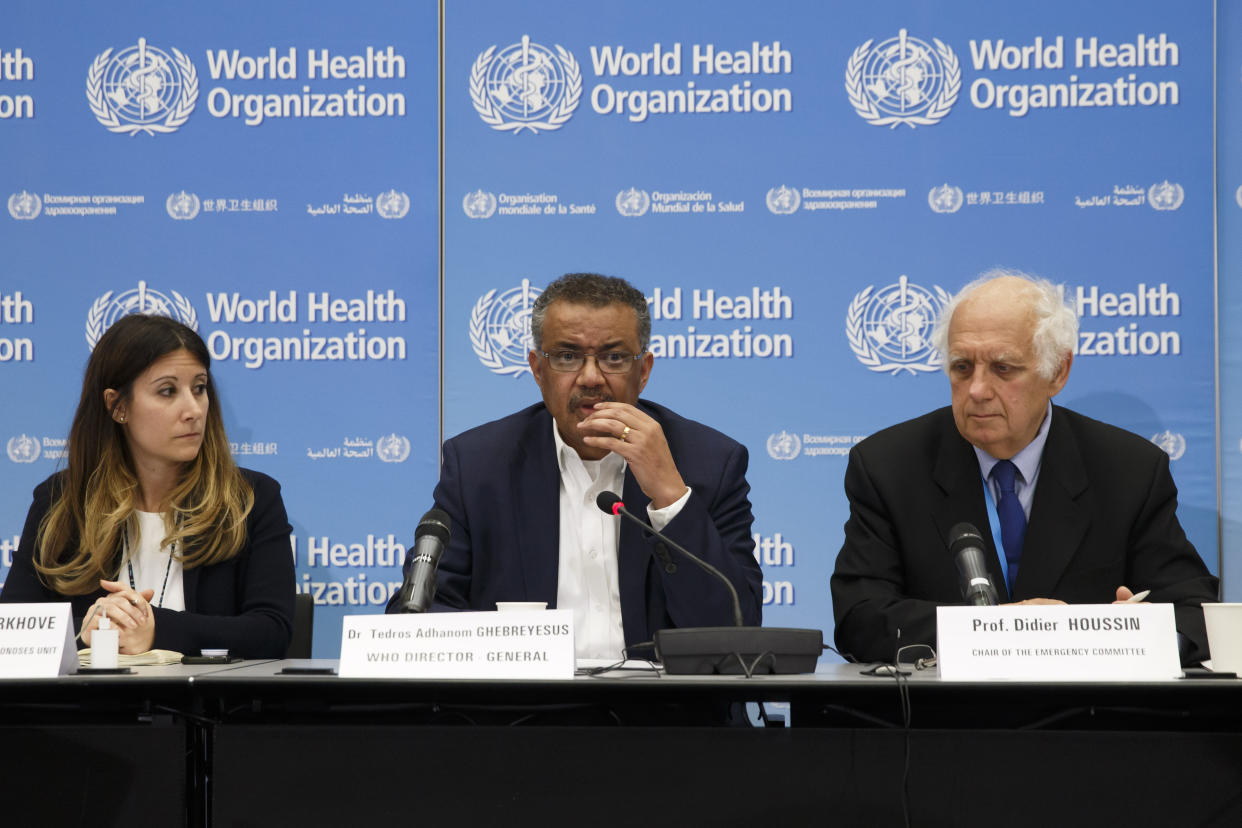WHO deems coronavirus outbreak a global health emergency – Here’s what the ‘extraordinary event’ means

Hours after the Centers for Disease Control and Prevention (CDC) announced the first human-to-human transmission of the coronavirus on U.S. soil, officials from the World Health Organization (WHO) declared the outbreak a global health emergency — activating a worldwide effort to stop the virus’s spread.
The decision, announced Thursday afternoon, came after hours of deliberation from an emergency committee of health experts, marking the third time that the group has debated the decision since the start of the outbreak, which has been traced to a meat market in the Chinese city of Wuhan.
Although the organization initially showed restraint on declaring the emergency, WHO experts said the decision —in light of the now more than 8,200 cases worldwide — was nearly unanimous. In a press conference following the news, WHO director-general Tedros Adhanom Ghebreyesus, PhD, said the decision is meant to unify the world around stopping the disease’s spread.
“The only way we will defeat this outbreak is for all countries to work together in a spirit of solidarity and cooperation,” Tedros reportedly said. “We are all in this together and we can only stop it together.” As the nearly 200 member states, including the U.S., work to streamline their efforts to stop the outbreak, here’s what you need to know about the WHO’s declaration.
Only five other outbreaks have been declared global health emergencies
Officially known as a Public Health Emergency of International Concern (PHEIC), the formal declaration has been made in just five other outbreaks: swine flu (2009), polio (2014), ebola (2014), zika (2016) and kivu ebola (2018). The WHO defines it as “an extraordinary event” which is determined to both “constitute a public health risk to other [UN] states” and “potentially require a coordinated international response.” The category was created in the wake of the 2002-2003 SARs epidemic, which many believe was exacerbated by the failure to respond rapidly to the virus’s outbreak.
It is considered a call to action
With the coronavirus outbreak now encompassing over 20 countries outside of China, the global health emergency status will — in the words of UN health experts — “[trigger] the aid system to intervene in full force.” Each of the 196 participating countries are given 48 hours to “assess the situation” in their country after which they must issue a report to the WHO about confirmed and potential cases. Moving forward, all countries are required to: detect (i.e. test for potential cases), assess (i.e. keep track of new cases as they arise), report (share updates through an international network) and respond (stay in contact with WHO). Each week, the WHO will release a situation report based on these findings, posted here.
It may require countries to increase travel screenings
As a part of a global health emergency, each country is required to follow what are known as International Health Regulations (IHR). Created in 2005, these regulations outline specific prevention and detection techniques to follow, in order to limit the spread of the disease. On WHO’s website, it notes that increased screening and testing may be required at ports, airports and ground crossings in order to “limit the spread of health risks to neighboring countries.” WHO is likely to update these guidelines in the coming days and weeks.
Preventing the destabilization of global markets is key
On top of streamlining efforts to stop the spread of the coronavirus, the WHO’s decision is also aimed at preventing “unwarranted travel and trade restrictions” that can prove detrimental to the global economy. The move comes as financial advisors continue to report plunging stocks. Experts are particularly concerned about oil and gas, as China remains the world’s top oil and natural gas importer. The global economic loss from SARS was estimated to be $40 billion but now, with China as a key player in the world’s economy, the cost could exceed that number. Thus far, WHO has dispensed $1.8 million in aid to help prevent the outbreak’s spread, but that number is likely to increase.
Read more from Yahoo Lifestyle:
CDC confirms first human-to-human transmission of coronavirus in the U.S.
110 Americans in 26 states under watch for Wuhan coronavirus as CDC calls risk to public 'low'
FDA warns Purell to stop claiming hand sanitizers help kill the flu, Ebola and MRSA
Follow us on Instagram, Facebook and Twitter for nonstop inspiration delivered fresh to your feed, every day.


